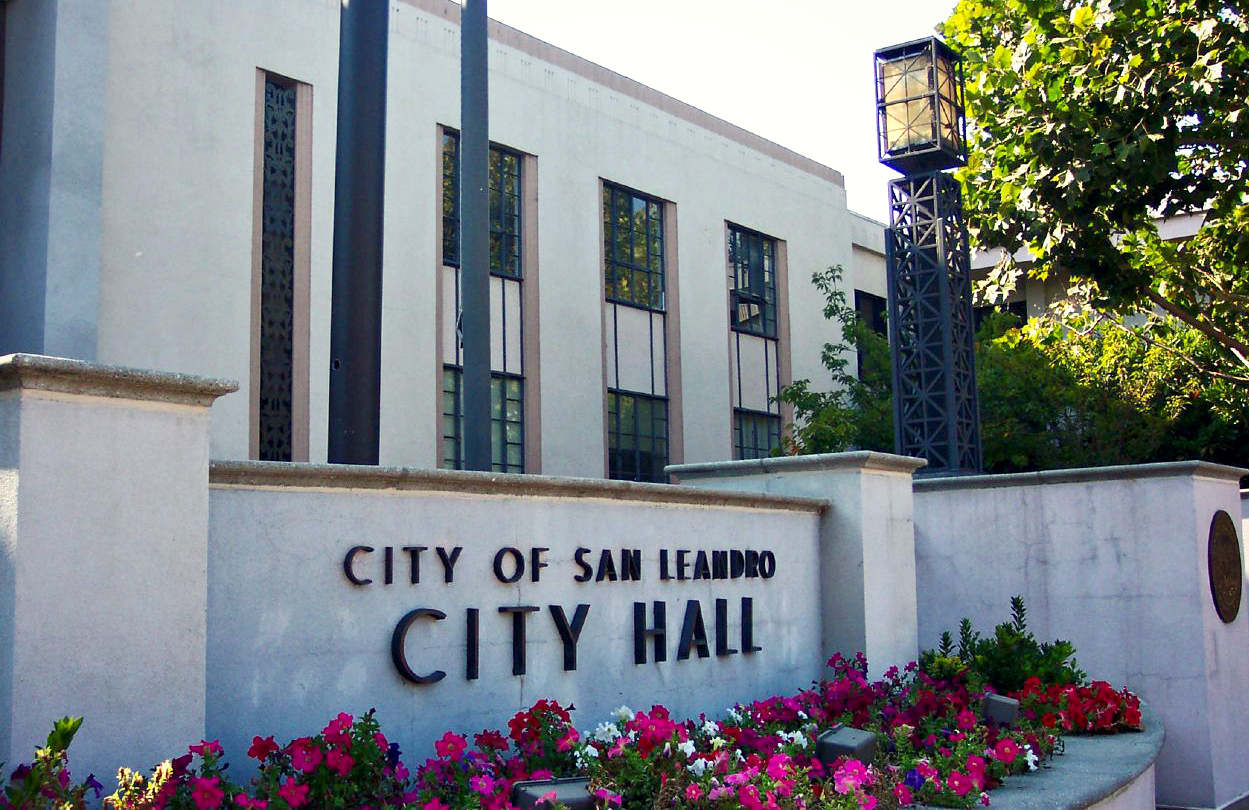By Steven Tavares.
With a number of San Leandro housing projects in the pipeline and a potential push for retail cannabis permits in the near future, Councilmember Lee Thomas believes the city needs a lobbying ordinance in order for the council and public to distinguish whose interests are being served.
Thomas proposed Tuesday night to direct city staff to study how an lobbying registration ordinance could be applied in San Leandro. The council supported the motion, 6-1, with Mayor Pauline Russo Cutter opposing.
“A lobbying ordinance would allow residents to know who is trying to push buttons in the city,” Thomas said, in an interview, following Tuesday night’s meeting.
“If you look at the city council agendas over the past few months you potentially have lobbyists here in the city trying to get decisions made,” he added. “I want it to be sure that we’re not wondering whether or not someone is a lobbyist.”
Over the past few years, following the city’s decision to issue potentially lucrative permits for medical cannabis dispensaries, San Leandro city officials have faced intense lobbying from prospective applicants. Specifically, the current controversy with the Davis Street Wellness Center dispensary has raised uncertainty about who is actually paid to lobby for the group and who is merely a volunteer passionate about the dispensary.
Furthermore, the 23-page memorandum sent by San Leandro City Manager Chris Zapata last month to rebut a claim that he sexually harassed Rose Padilla Johnson, a well-known CEO of a local non-profit, also detailed a number allegations of impropriety by a San Leandro businessman known to many in the city as an unregistered East Bay local government lobbyist.
In Zapata’s letter, for instance, he alleges Gordon Galvan, also a former two-term San Leandro councilmember, offered him gifts while lobbying on behalf of the Davis Street Wellness Center dispensary. Zapata also claimed that Galvan offered him a below-market-rate monthly rent to live in his four-bedroom home in downtown San Leandro. In an interview last month, Galvan denied the claim.
Although none of San Leandro’s three permitted medical cannabis dispensaries have opened for business, Thomas believes a big lobbying push for the council to approve adult-use retail dispensaries is coming soon, necessitating the city moves quick to ensure transparency.
Oakland has employed a lobbying ordinance since 2004 that requires paid lobbyists to register with the city and to file quarterly reports with the Oakland Public Ethics Commission. Failure to file the reports can result in disbarment from lobbying city officials for one year. The ordinance also includes a “revolving door” clause that prohibits elected officials, high-level department heads, in addition, to members of city boards and commissions, from lobbying the city for one year after they leave their position. Richmond also has lobbying registration rules.
Thomas said he views Oakland’s ordinance as a guide for San Leandro, but is open to versions used in other cities. “There’s some good things that can potentially come from Oakland’s ordinance but I also think it’s important to do a comparison to other cities our size and maybe mesh an ordinance that has the best of both.”
“San Leandro has a lot of people who have done work in the city to make things happen and I also want to make sure that that isn’t confused with what your actually intentions are,” said Thomas. “There’s a difference between lobbying and let’s go out and talk about San Leandro.”





